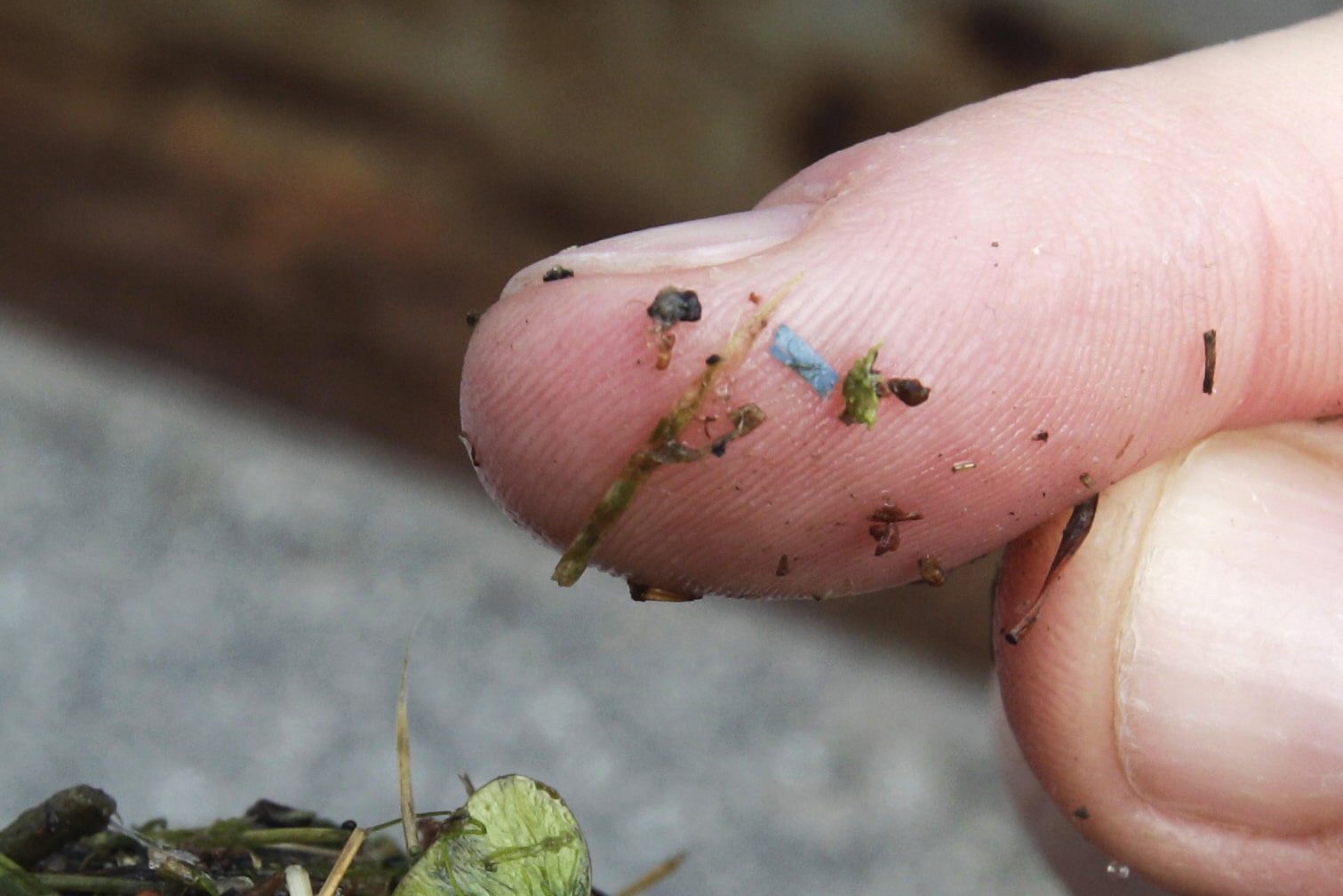Warm Up

Helpful Words and Phrases
Listen and repeat. 聞いてリピートしましょう。
-
- ex. Scientists study how microplastics get into our drinking water.
-
- ex. The jacket is made of man-made fabric, not wool or cotton.
-
- ex. The weather is increasingly getting hotter each summer.
-
- ex. The boy ingested a chemical by accident. He was taken to the hospital.
-
- ex. Some cleaning products are toxic, so you should keep them away from children.
Article
Read the article below and answer your tutor's questions.記事を読んで講師からの質問に答えましょう。
Microplastics, or tiny pieces of man-made plastic, are found everywhere. They can be in the ocean, air, food, and water. Microplastics are also inside our bodies, including the heart and liver. Researchers are increasingly interested in how much we inhale and ingest microplastics and what it does to our health. Evidence suggests microplastics might harm us, but we don’t know much yet.
According to a study in 2019, people might consume about 5 grams of plastic, or the size of a credit card, each week. Evidence shows that microplastics are present in different foods, like salt, sugar, and seafood. Drinking water, both bottled and tap, also contains microplastics. But a 2022 report from the World Health Organization said microplastics don’t clearly harm human health based on current evidence. In fact, cancer and heart disease deaths are decreasing.
Despite this, some scientists still believe that microplastics are harmful because they contain toxic chemicals. They also believe microplastics could cause problems, like heart disease and cancer. Experts are still arguing about whether microplastics are bad for us. So, more studies are needed to fully understand their impact.
This material was based on an article by The Associated Press.
Discussion
Choose a topic and discuss the questions with your tutor.トピックを選び、質問に基づいて議論しましょう。
Impact of Microplastics
- Experts argue about the effects of microplastics on human health. Do you believe microplastics are something we should worry about? Why or why not? Discuss.
- In your opinion, what should be done to reduce the amount of microplastics everywhere (ex. stop producing plastics, recycle plastics)? Discuss.
- Microplastics are found everywhere. In your opinion, is it possible to avoid consuming microplastics? Why or why not? Discuss.
Research on Microplastics
- Do you believe that research on microplastics is urgent? Why or why not? Discuss.
- A 2022 report from the World Health Organization (WHO) said microplastics don’t clearly harm human health based on current evidence. Does this report change your opinion on microplastics? Why or why not? Discuss.
- Do you believe it is important for people to be aware of microplastics and their possible health risks now? Why or why not? Discuss.
Feedback
表現の幅
語彙をどの程度使えるか
一貫性
論理的な話し方ができるかどうか
音韻
発音が相手にとって
聞き取りやすいか


